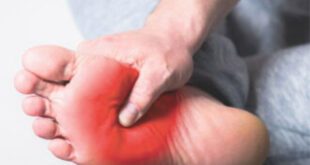 Being mindful of how often you eat can be just as important as what you eat when it comes to preventing cavities. The food you eat affects your whole mouth from the time you take a bite to hours after you swallow. Learning various foods affect your oral health is important for maintaining good oral health.
Being mindful of how often you eat can be just as important as what you eat when it comes to preventing cavities. The food you eat affects your whole mouth from the time you take a bite to hours after you swallow. Learning various foods affect your oral health is important for maintaining good oral health.
It is no surprise that from the first bite of certain foods, changes occur within your mouth. The mouth becomes more acidic when the bacteria use sugar for fuel and produce acid. This increase in acid levels speeds up the process that results in cavities.
It is well known that the body eventually breaks down all carbohydrates into simple sugars. But what many people don’t realize is that the different types of carbohydrates break down at varying rates and in different parts of the body. For example, fermentable carbohydrates break down immediately while in the mouth, whereas others aren’t broken down until they reach the digestive tract.
Fermentable carbohydrates include foods such as cookies, soft drinks, candies, bread, crackers, bananas, and breakfast cereals. These foods begin to break down almost immediately after you take a bite.
Bacteria in the mouth work with the sugars from these foods and the decay process begins as acid is produced. The acid dissolves minerals inside the tooth enamel. On the other hand, certain foods, fluoride and saliva work to increase enamel minerals.
Tooth decay begins when minerals are lost quicker than they are replaced. The longer these carbohydrates remain in the mouth, the more acids will be produced. Knowing this it makes sense that “sticky” carbohydrates, such as raisins, has the potential to increase the amount of damaging acids in the mouth. To make matters even worse, the acids produced by the bacteria and sugars remain in the mouth for about half an hour after swallowing.
Some Foods Promote Oral Health
Not all foods increase acid production, in fact, some foods actually help protect teeth from decay by increasing saliva and neutralizing the acids produced by bacteria. A good example of this is aged cheese – when eaten immediately after sugary foods it neutralizes the acid.
Studies have shown that chewing sugarless gums may also help prevent cavities by reducing the amount of bacteria in the mouth and help protect the teeth from the acid. Also, many sugarless gums and candies often increase the amount of saliva, which is a natural antibacterial agent.
Food Guidelines for Preventing Tooth Decay
According to the Dietary Guidelines for America, following these tips will help minimize the amount of acid created by the bacteria in your mouth.
1. Limit between-meal snacking to reduce the amount of time your teeth are exposed to acid. If you snack, choose foods that are not fermentable carbohydrates.
a. Best choices: cheese, chicken or other meats, nuts or milk. These foods may actually help protect tooth enamel by counteracting acidity or by providing the calcium and phosphorus needed to remineralize teeth.
b. Moderate choices: Firm fruits like apples and pears and vegetables. Although firm fruits contain natural sugars, they have a high water content that dilutes the effects of the sugars and they stimulate the flow of saliva, which has antibacterial factors and helps protect against decay.
c. Worst choices: Candy, cookies, cakes, crackers, breads, muffins, potato chips, French fries, pretzels, bananas, raisins and other dried fruits. These foods provide a source of sugar for certain bacteria on the teeth to produce acid. The problem can be worse if the foods stick to or get caught between teeth.
2. Limit the amount of soft drinks or any other sugar-containing drinks, including coffee or tea with added sugar, cocoa and lemonade. Fruit juices contain natural sugars that can also cause tooth decay. Limit the amount of time you take to drink any of these drinks and avoid sipping them throughout the day. A can of soda finished with a meal is better than a can of soda finished over two hours because your teeth are exposed to high acid levels for a shorter amount of time.
a. Better choices: unsweetened tea, milk and water, especially fluoridated water. Tea also has fluoride, which can strengthen tooth enamel and milk can also help deter decay. Water helps flush away food debris and can dilute the sugar acids.
3. Avoid sucking on hard candies or mints, even the tiny ones – unless they are free of sugar. They have enough sugar to increase the acid produced by bacteria to decay levels. If you need a mint, use the sugarless varieties.
4. Very acidic foods (such as citrus fruits) can make the mouth more acidic and may contribute to tooth demineralization and erosion. The effects of acid exposure are cumulative, so every little bit counts.
5. Brush your teeth after eating to remove the plaque bacteria that create the destructive acids. If you cannot brush after every meal, brush at least twice a day to thoroughly remove all plaque bacteria.
6. Chewing sugarless gum that contains xylitol can help reduce the risk of cavities. It not only helps dislodge some of the food stuck to your teeth, it also increases saliva flow to help buffer the acids.
Village Dental
352-205-7667 or 352-753-7507
Check Also
Revolutionizing Neuropathy Treatment: The Summus Laser Approach at LaserLab
Neuropathy, a condition affecting an estimated 42.5 million Americans, can significantly impact one’s quality of …
 Central Florida Health and Wellness Magazine Health and Wellness Articles of the Villages
Central Florida Health and Wellness Magazine Health and Wellness Articles of the Villages



